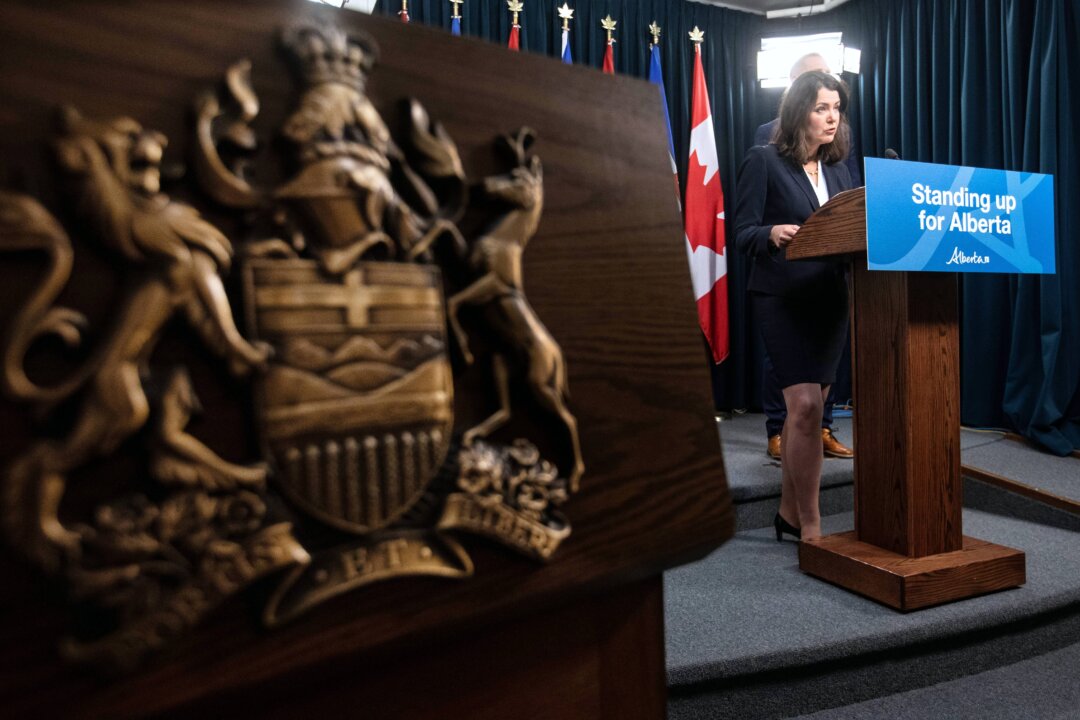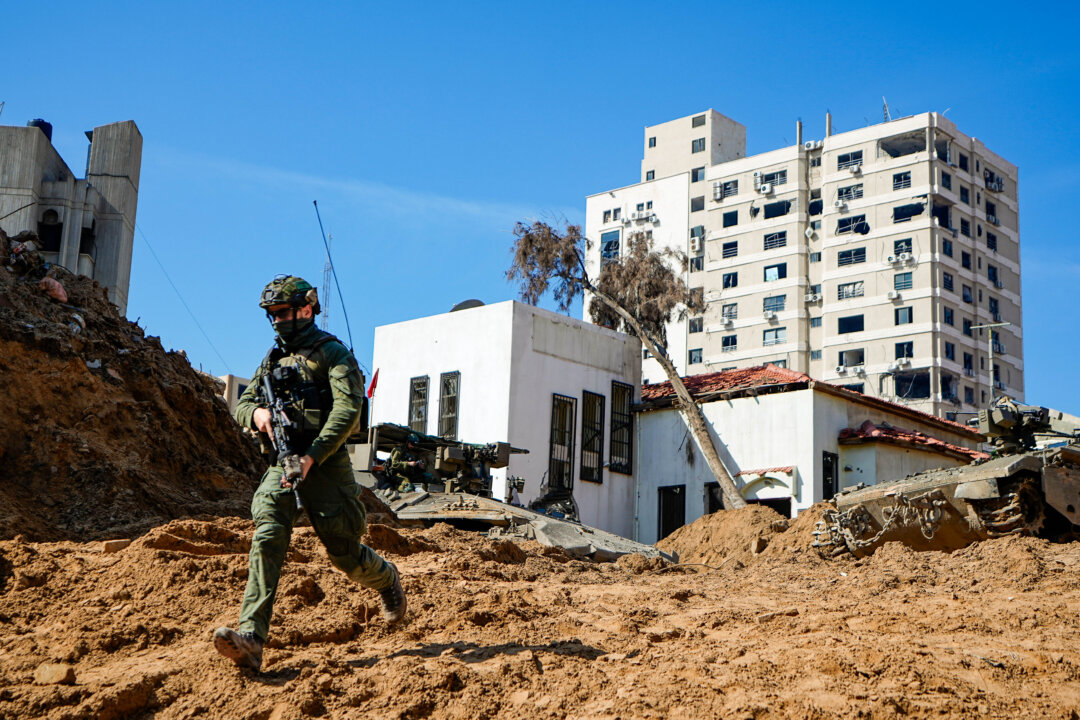It is inconceivable that India would be so foolish as to believe it could escape detection by an advanced country when pursuing extremists in Western countries
Commentary
Ottawa and New Delhi are currently embroiled in a diplomatic row over allegations of an Indian hit team operating in Canada.
On May 3, the Royal Canadian Mounted Police (RCMP)—you know, the storied men in scarlet who always get their man—announced the arrest of three Indian nationals for the murder of Hardeep Singh Nijjar in Surrey, British Columbia in June.
The three young men have been in Canada for three to five years.
The clash of cultures between the two countries is exacerbated by the clashing personalities of their leaders.
Canadian Prime Minister Justin Trudeau has adopted virtue signalling and progressivism as part of his policy suite.
For example, ex-pats Nigerian Obianuju Ekeocha and David Mulroney (former Canadian ambassador to China), noted that in the name of a “feminist” foreign policy, a major share of Canada’s foreign aid is directed at “sexual and reproductive health and rights” that challenges widely-held core beliefs of most African people in the sanctity of life, and the primacy of the family.
Canada should “talk less and listen more.”
Meanwhile, Indian Prime Minister Narendra Modi is a muscular Hindu nationalist, widely regarded in Canada as anti-Muslim and increasingly authoritarian.
In a 23-country poll by the Pew Research Center last August, only 47 percent of Canadians held favourable views of India. Israel led with 71 percent favourable opinions, the UK was 66, and the United States at 51 percent.
What’s Happened So Far?
The bombshell allegations were first raised by Mr. Trudeau on Sept. 18.
Canada’s security agencies, he told Parliament, were “actively pursuing credible allegations of a potential link” between Mr. Nijjar’s murder and Indian agents. Most media reports failed to grasp the subtle ambiguity of Prime Minister Trudeau’s carefully parsed words.
India forcefully denied any involvement, describing the “unsubstantiated” charge as “absurd.”
The depth of Indian anger was evident in the description of Canada as a safe haven for “terrorists, extremists, and organised crime,” language normally reserved for Pakistan.
Indians, including the Sikh-majority government of the state of Punjab, believe that intra-Sikh quarrels in British Columbia’s volatile gurdwara politics was the more likely source of Mr. Nijjar’s killing.
Troublingly, Mr. Trudeau is yet to provide any evidence of the serious charges. Instead, in effect he told Modi: We think you are guilty. Help us prove it. The court case against the three arrestees will be eagerly watched by Trudeau-doubting Canadians as well as India.
Mr. Nijjar was a wanted man in India with a $16,000 bounty on his head. India has long accused Canada of being too tolerant of anti-Indian activities and statements by the Sikh diaspora because of their electoral importance in domestic politics.
The issue tainted Prime Minister Trudeau’s India trip in 2018 when his Hollywood extravaganza-style dresses earned him a reputation of being deeply unserious.
It resurfaced with his blundering support for agitating Sikh farmers in 2020. Indians recalled and mocked these when Mr. Trudeau suppressed his own Freedom Convoy of truckers with extraordinary heavy-handedness.
Mr. Trudeau’s characteristically ham-handed approach to bilateral relations with an important country contrasts sharply with the maturity shown by the Biden administration south of the border. And that is saying something.
On Nov. 29, an Indian national was formally indicted in a New York court for a thwarted conspiracy to assassinate Gurpatwant Singh Pannun, a dual American-Canadian citizen.
Washington warned New Delhi of concerns over involvement in the plot. India reacted with surprise, saying such acts were contrary to policy and against India’s own interests. It set up a high level committee to investigate.
On April 29, the Washington Post named Vikram Yadav, a former agent of the Research and Analysis Wing (RAW), India’s external intelligence agency, as mastermind of the plot that had allegedly been approved by Sawant Goel, a former RAW chief.
Ajit Doval, Prime Minister Modi’s national security advisor, had “probably” been aware of it.
What’s more, in recent years RAW agents had also “faced arrest, expulsion and reprimand in countries including Australia, Germany and Britain” for an “escalating campaign of aggression” against members of the Indian diaspora.
The next day India dismissed the Post report as “unwarranted and unsubstantial imputations” on a serious matter. Nevertheless, there must be some disquiet in Delhi at the gradual spreading web of these reports.
More recently, the Post also revealed that ASIO (the Australian Security Intelligence Organisation) had disrupted a “nest of spies” in 2020.
On May 1, ABC reported that this “nest” was from India, and these operatives had been kicked out of Australia after being caught trying to steal secrets about sensitive defence projects and airport security, as well as classified information.
Not Much to Fear From India
Rather than voice suspicions prematurely in Parliament, Canada’s Trudeau would have been better advised to copy the American example, wait for the RCMP to complete their homicide investigation, lay charges, give evidence of official complicity–forensic analysis, witness testimony, CCTV and/or surveillance photo, audio and video corroboration–and request Indian assistance in judicial proceedings.
As India rises through the international power hierarchy with growing military capability, it may well resort to such acts against neighbouring territories that provide safe haven explicitly, tolerate or are unable to rein in groups engaged in hostile acts in India.
The Modi government in particular has been willing to expand the limits of the possible against India-hostile groups in Myanmar and Pakistan.
But New Delhi is not known so far to have sanctioned state killings of individuals, not even in Pakistan.
RAW lacks the training, assets, and authority to kill enemies of the state sheltering in foreign lands. Instead, it works mostly in the neighbourhood through domestic rivals of those on its watchlist. The tools of its tradecraft are bribery and blackmail, more than guns.
More importantly, democracies do not normally commit such acts on one another’s territory. At worst, Israel has occasionally used fake Western passports for some of its assassinations in non-Western countries.
At present, at best, India would have only the most rudimentary capability to carry out such missions.
Despite long-running frustrations with Khalistan extremists enjoying safe haven in Canada, it is inconceivable that India would be so foolish as to believe it could escape detection by an advanced country which is embedded in the Five Eyes intelligence sharing club.
The risk of being caught, and then the damage in relations, with all five countries—on top of a rupture in diplomatic, trade and tourism relations with Canada—seems too high a risk for a state sanctioned hit on Mr. Nijjar.
It would also fatally undermine India’s campaign against Pakistan as a state sponsor of terrorism.
Meanwhile, as the unrelated ongoing war in Gaza shows, diaspora-courting domestic politics can be shown to distort foreign policy, putting electoral success against foreign policy priorities.
The biggest policy lesson for all Western countries is the increasing imperative to build firewalls between domestic political tactics and strategic foreign policy choices.
The author is a dual Australian-Canadian citizen.
Views expressed in this article are opinions of the author and do not necessarily reflect the views of The Epoch Times.














 English (US) ·
English (US) ·  Turkish (TR) ·
Turkish (TR) ·